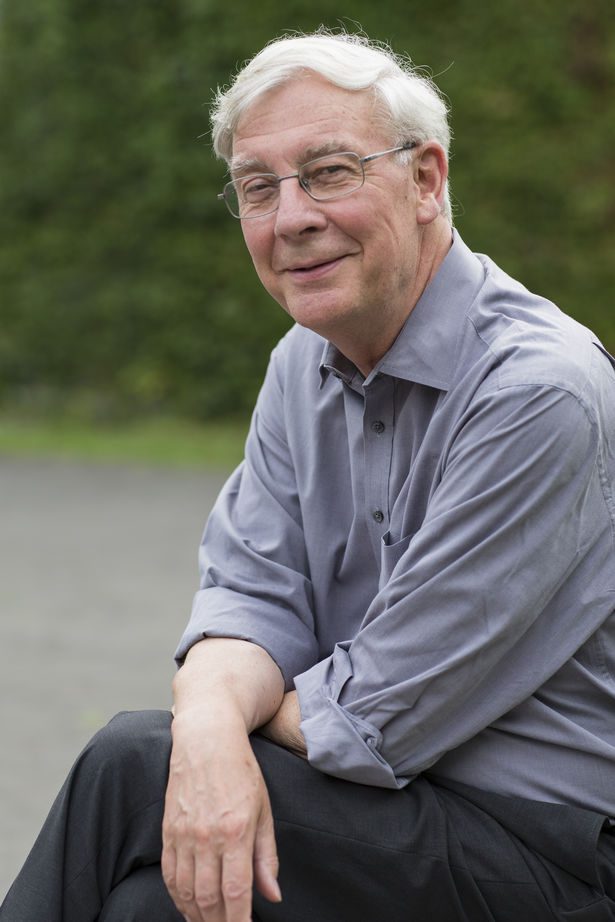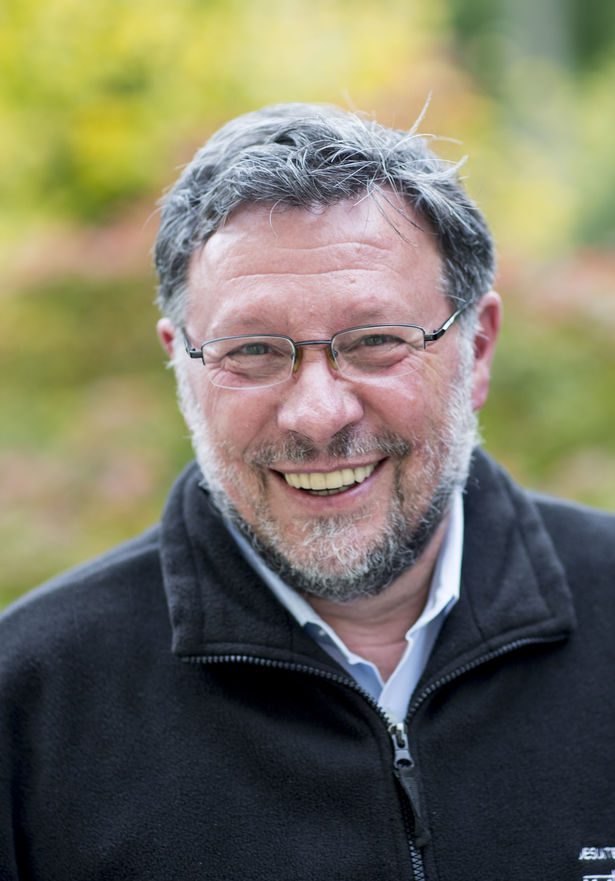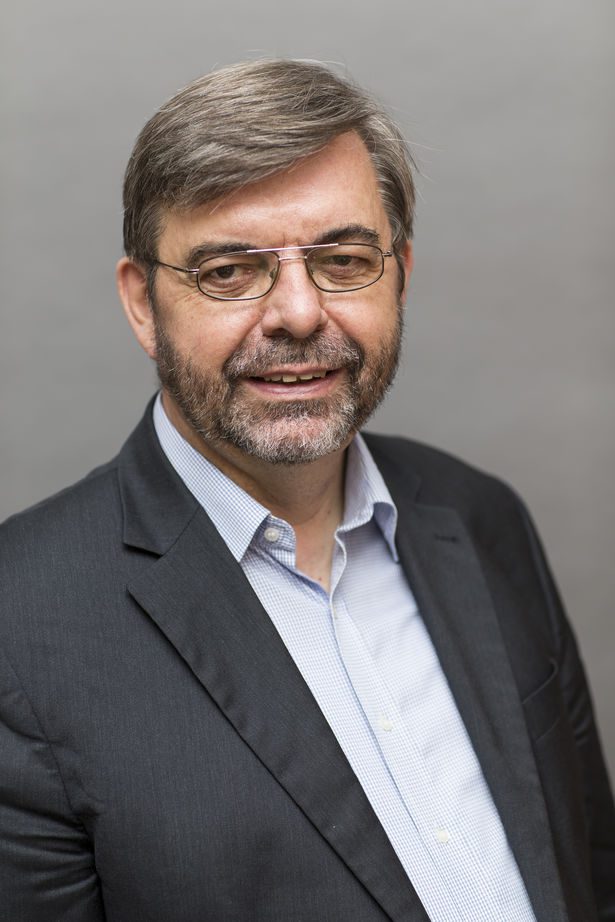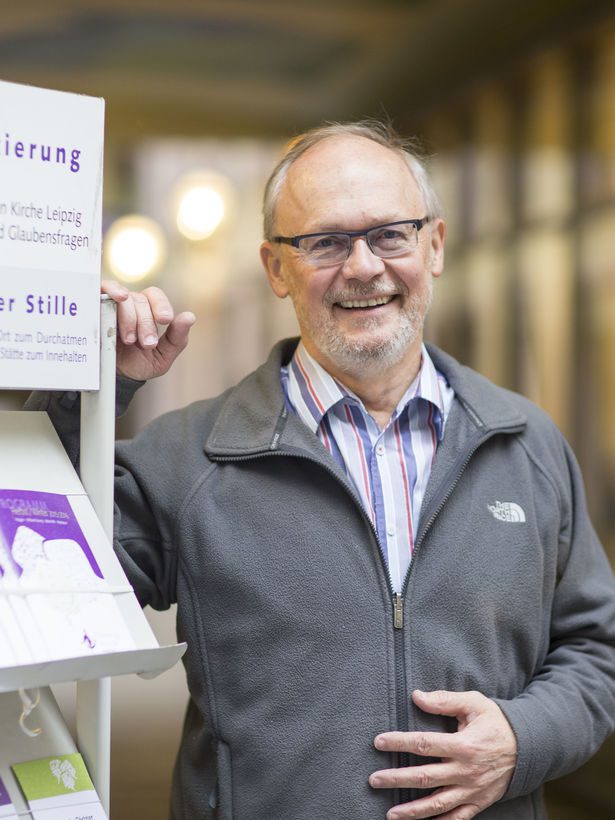A red flag still appears in the southwestern part of the map of Germany on our homepage under the menu item “Where we are”. But that will soon change: At the end of the year, the Jesuits will leave Trier. With a service on 7. December the bishop of Trier Stephan Ackermann will say goodbye to the order from the city and from the diocese.
The history of the Jesuits in Trier is a long and eventful one – and has left innumerable traces in the city as well as in the whole diocese. Sometimes they are obvious: for example in the names of the Jesuit church or the Jesuit pharmacy. More often it takes a second look to discover the remains of Jesuit influence in today’s Trier.
Their local work began in 1560, when the Archbishop of Trier appointed the Jesuits “for the consolidation of the religion” called to Trier. From the beginning, the education of young people was one of the main tasks and concerns of the order. The historian Bertram Resmini pointedly states that “the history of higher education in Electorate Trier until 1773 is largely identical with the history of the Jesuit settlement in the diocese”. Because in the course of the time the Jesuits founded in Trier several schools as well as the first university and put beyond that a completely innovative concept at that time into practice: They founded the Marian Young Men Congregation (MJC) – to many probably better known as “the Miez”. The MJC brought together already at that time with its youth center young people from all social classes. Today the association is guided by a mission statement. To this day, he explicitly refers to the original connection of education and Christian orientation, as the Jesuits had striven for it. Only at the beginning of the 1990s the Trier Jesuits left the youth work. Your idea of a meeting place for young people in Trier, where origin does not matter, lives on and is put into practice every day.
In addition to youth work, since the 1950s the Fathers were mainly involved in the pastoral care of confessions and hospitals, as well as popular missions, and were active as spiritual directors (spiritual guides, spiritual “coaches”) in the seminary. Only three Jesuits remained after the death of Superior Father Siegmund Pawlicki SJ in April this year. After Koblenz (2003) and Saarlouis (2007) now also the Trier Ignatius House in the Dietrichstrasse closes its gate.
Four Jesuits now remember their time in Trier and tell a formative anecdote, with the Miez playing a role for each of them.

Two interjections and an incident
From my time as youth priest at the MJC of 1617 in the Mergener Hof in Trier (1975-1982) two interjections and one incident have remained particularly in my memory. They made me say to myself over and over again: “You have to love them, otherwise nothing will come of it.”
Interjection number 1: In the Christmas Mass of 1979, the moment of intercession arrived. The Mass team had attached to a side wall of the basement hall a large map of the world made of white cardboard. There were small holders made of solid cardboard. They were placed on the map of the world with a pin, in places where there was war and hatred. The holder served as a base for a burning tea light. They became “focal points” from the ranks of those gathered called. At the end a voice called out: “Tubingen”. After a brief stupor, a knowing murmur arose: Hans Kung’s teaching license had been revoked shortly before.
Interjection number 2: Again a Christmas Mass. The cellar hall was full of people, mostly younger ones. The fresh air was quickly used up. It smelled strongly of Bescherung. I led the service. During the prayer of the Lord, I came to the passage that reads: “Therefore we come before your face and in communion with the whole Church we celebrate the most holy night in which Mary, in her virginity, gave birth to the Savior of the world.” I could not finish the sentence. Because some voices rose up and shouted: “What nonsense!!” After a moment of shock I read the whole sentence again. This interjection is still with me today.
The incident: At an upper group weekend in the leisure home of the MJC in Vierherrenborn I wanted to hold with the group, as usual, the eve mass. Then one of the group said: “We do not want a mass.” I had not expected that. At first I did not know what to say. When I had found my language again, I said: “I know that I cannot force you to go to mass. But I have a request: Keep silence for three quarters of an hour, so that I can lead the hl. Knives can celebrate. For me this is important.” They agreed. When I heard the hl. When I wanted to start the show at the scheduled time, they were all there. “You have to love them, otherwise nothing comes of it.”
P. Wendelin Koster SJ (Frankfurt/M.)

An exciting soccer game
A rather exciting story from my time in Trier I experienced with young people from the MJC Trier. It was during a leisure time in Munich, when we could get tickets for a Bundesliga home game between Bayern Munich and MSV Duisburg. There we sat in the stadium and watched the game with excitement. MSV Duisburg played well and deservedly led at half time. We cheered, of course, but we were surprised that the spectators around us were rather silent.
In the second half Bayern Munich turned the game by two questionable penalties, and now the people around us cheered. We noticed: We were sitting in the middle of a Bayern block, some had beer cans in their hands. But the young people did not let themselves be intimidated, but continued to cheer loudly for the MSV Duisburg. Even by shouts like “shut up” or “go home the young people did not give up. I myself was a bit queasy, because I didn’t know how the Bayern fans would react to it.
In the end MSV Duisburg lost unhappily. But the young people had their fun.
P. Ludwig Dehez SJ (Cologne)

The apprentice priests
From 1974 to 1976 I was the “Interstizler” in the Jesuit community in Trier and worked in the youth center “Mergener Hof”. Interstics were the Jesuits in formation who were sent to a practical assignment after the study of philosophy but before the study of theology. What used to be called “Interstiz” is now called “Magisterium”.
I worked in the Mergener Hof in the associational youth work of the MJC, which was at that time still very broadly set up with ca. 40 groups of 5 to 10 members each. At that time, three fathers and two interns worked at the Mergener Hof. Many of the staff did not get it clear why we are all called Jesuits, but some call themselves Fathers, but the others Scholastics or Interstics. In another large institution one found to the linguistic arrangement that all Fathers were called, one called “Fathers without mass”, the other “Fathers with Mass. The janitor of the Mergener Hof found to another linguistic regulation. He simply called us “apprentice fathers”. The young people had fun with this new word.
P. Franz Meures SJ (Mannheim)

Catching root owls
On a warm summer evening in the middle of the eighties of the last century in the summer camp with children from the Mergener Hof:
“Guys, pay attention: I have something really great! When I went for a walk in the evening, three owls flew over the roof. They are sitting back there in the tree. If you want, we can catch them!
Root owls are very rare animals, as you can find them only in zoos or in remote alpine valleys. A friend of mine, whose father is a forester, has a stuffed root owl on his desk! So, fetch your flashlights, then go’ off!
So pay attention: I count to three, then you turn on the lights. The owls are blinded by the light and fall down from the tree! – No, they break themselves certainly nothing! You do not have to write to the animal protection society. – Then you can look at them and take them with you. – But you have to be much quieter, otherwise they will fly away first!
Shhh! – Shhh! – (Whispering:) So, up there on the tree they sit. Closer! Even closer – once all in a circle around the tree! So: one – two – three – go!”
Two well-filled buckets of water are poured on the astonished crowd .
Addendum: But the children knew how to take revenge on us adults so that justice was restored.
P. Hermann Kugler SJ (Mannheim)
Farewell party
The Trier Bishop Dr. Stephan Ackermann celebrates with us on Friday, 7. December 2018, at 6 p.m. a solemn service in the Jesuit Church (Seminary Church, Jesuitenstrabe 12-13, 54290 Trier). The church and crypt are already open from 5 p.m. and the graves of Father Friedrich Spee von Langenfeld (1591 – 1635) in the crypt and Father Wilhelm Eberschweiler (1837 – 1921) in the south nave are accessible. After the Eucharistic celebration, there will be a reception in the doctoral hall of the Episcopal Seminary (Jesuitenstrabe 13, 54290 Trier). And since farewell is always also the beginning of remembrance, we are happy that Father Klaus Schatz SJ, em. Professor for church history in Frankfurt-Sankt Georgen, who will present stations of the Society of Jesus in Trier – especially of the last 100 years.
Worth knowing
“Tradition is preserving and moving”: a look into history opens perspectives for the future. Founded by Ignatius of Loyola (1491-1556), the Jesuits were the first religious order whose goals were entirely based on mission and teaching. Because of its strong missionary orientation according to the slogan “To find God in all things” and the efforts of the members of the order to change also the worldly environment according to their mission, the order was always controversial in its history. On the one hand the Jesuits often uncompromisingly supported the papal authority, on the other hand the order came several times into conflict with the official church. In 1773 it was even dissolved completely. But again and again the Jesuit Order has regenerated itself and has produced a number of important personalities.
We Jesuits – the Society of Jesus – are a religious community of the catholic church. “Jesuit” comes from “Jesus. And this is how we understand ourselves: We are “companions of Jesus”, Men who live in friendship with Jesus Christ and let themselves be taken into service by Him. Behind our names we write the abbreviation “SJ” for “Societas Jesu, which translates as: Society of Jesus.
Since its foundation in 1540 by Ignatius of Loyola, we have lived and worked for the proclamation of the Gospel. Our focus is on serving the faith, promoting justice, and dialogue among different cultures and religions. “Seeking God and finding Him in all things” and “All for the greater glory of God – with these words our spiritual profile is expressed. In collaboration with many others who share our vision and values, 419 Fathers and Brothers currently live and work in the Central European Province of the Jesuits.
Our commitment is focused on
► Education at our seven schools and research at our four universities
► Retreats (spiritual exercises), faith orientation and pastoral care in the Jesuit churches
► Social commitment in refugee work
► International cooperation worldwide and dialog between religions.